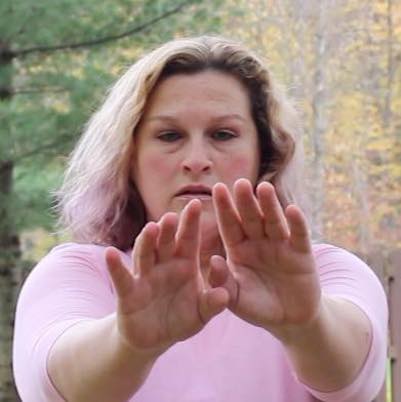Even though I do my best to take off the clinical cap outside of session, friends often ask for my opinion about all things mental health. When a friend recently talked about their long-term struggles with anxiety, I mounted my usual soapbox about the importance of feeling your feelings fully and not stuffing them away. As a trauma-focused therapist and a yogi, I believe that most of the symptoms that trouble us are the result of unhealed emotional wounds that never got a chance to heal at earlier points in our lives. Until we permit ourselves to feel what we weren’t able, willing, or allowed to feel at these earlier points, we’ll remain in a loop of distress that manifests in a variety of symptoms.
My eyes rolled and my fury rose, knowing that they heard this from either a cognitively driven therapist or a psychiatrist. And in the spirit of feeling my feelings through, I am not afraid to disclose that I get incredibly angry when I hear that feelings phobia is alive and well among mental health providers. Once, a student reported to me that his psychiatric medical director was so nervous about clients not being able to handle feelings, she forbade any treatments at their clinic that might make patients cry. Even as I type this, I feel the Hulk rising up in my chest about to bust out, so infuriated that providers—either due to their own fear or restrictions that systemic forces placed upon them—are deliberately keeping people stuck in a rut when they offer such direction.
The major lesson that I have learned from people I’ve served in the last fifteen years as a trauma specialist is that our feelings are not the problem. Everything we do to keep from feeling our feelings and experiencing our emotions—even the dark and heavy ones—is the real problem. We engage in addictive behaviors, we isolate and cut off connection, and we begin to accept phenomenon like panic attacks, nervousness, persistent body distress, and dissociative numbing as the norm. As my friend Esther describes it, “I’ve parked diagonally in the depressive position as the lesser of evils for most of my life.” While I am not opposed to psychiatric medication that is responsibly prescribed within a larger context of care, I get concerned when people become so fixated on getting their medication type(s) and dosage just right. We believe that finding this medical solution will help us to survive the rigors of daily living, and for a time, it might. There are even some conditions and organic brain structures where psychiatric medication may even be necessary for survival.
But are we only meant to survive?
Or by refusing to listen to what our feelings, experiences, and sensations have to share with us about what needs healed, are we cutting ourselves off from the deepest well of healing that is available to us?
My answer to this question is obviously yes, and it may seem like that resounding affirmation comes from a place of tremendous privilege. True, I have extensive training in both EMDR therapy and classical yoga. I’ve invested a great deal of my own money in my therapeutic process and have gotten to a place where if I feel an emotional wave coming over me as I drive down I-80, I’m not afraid to cry until it passes. I take Rumi’s teaching in The Guesthouse to heart by welcoming and entertaining them all—the joys, the sorrows, and the meanness.
I also know how to put such waves of feeling into what therapists sometimes call a container, a visual or sensory strategy we can work on to hold the full expression of the feeling until the time and place is more appropriate. If I am still crying when I arrive at my worksite, I know how to use my container to keep it together in order to get through the day. Yet because I ride the waves as they come, I usually don’t need to use the container. The feeling will pass and I can get on with my day. If the same feeling keeps coming up as a pattern, I know to take it to my therapist, sponsor, spiritual teachers or friends, and they help me identify where I need to do the work. And as a woman in long-term recovery, I’ve had over seventeen years of practice in cultivating this art.
That is my privilege—yet remember, there was lots of stuff I needed to heal from in the first place! So many of my early childhood memories center around being made to feel weird because I felt things so intensely. I am the girl who cried for days when the bad people painted Big Bird blue in the 1985 Sesame Street film, Follow That Bird. I am the girl who was constantly told that she was too sensitive, whose caretakers didn’t really know how to handle her. I am also the girl who knew that if I expressed what I felt about many of the happenings of my childhood, my safety would be threatened. I still experienced emotions like fear, anger, disgust, and shame about the things going on around me over which I had no control. They just had nowhere to go or no healthy outlet through which to be expressed. So, I turned inward, first with eating. The arts eventually gave me an outlet that served as a bit of a release valve, yet when my perfectionistic tendencies shut those down in my life, drugs and alcohol became the natural way to temper my tendencies to feel things so damn hard. Fortunately, my recovery path led me back to the expressive arts as a healthy outlet for expression. And I can now embrace my sensitivity as a character asset. Yet getting to this place required time spent in healing practices and learning to remove the scripts of judgment around my feelings.
My clients, friends, and my own lived experience have also taught me a great deal about what makes it so commonplace to block the feeling and expression of even the most natural of emotions. The greatest hits of reasons include fear that I won’t be able to handle what comes up, fear of being judged, fear that I’m a bad person for feeling what I do, fear of being rejected, fear that they will never go away and so they’ll end up destroying me, fear of hurting others, fear of people taking advantage of my vulnerability, fear of doing the hard work, fear that no one will understand or get me, fear that my sense of safety or connection to people I love will be taken away, fear of being seen, fear of making real changes in my life…. With all of these fears, of course medicating alone seems appealing!
Consider, however, that these fears do not develop in a vacuum. We generally learn them from somewhere—from our families of origin, from society, from the systems in which we are educated and eventually go to work. For many of us, it’s literally the “systems,” like foster care, incarceration, and yes, the medical and mental health fields, that can teach us these horrid lessons. No wonder that so many of us are afraid to feel when people in positions of power, even people who we are told are there to help us, can literally be the source of our feelings phobia.
I’m not here to analyze whether your parents, guardians, teachers, or care providers had malicious intent when they first told you, “Don’t cry.” I do ask you to consider how this and other messages around feelings and emotions shaped your early experiences. A common thread for many of us is that some of our earliest wounding was also paired with damaging messages about what it means to express feelings, let alone have them. So whether, as a young man, you were taught that boys don’t cry, or whether you learned that crying only got you into more trouble, regardless of your gender expression, these source messages must be explored if it is your intention to overcome feelings phobia.
When I worked in addiction treatment, I offered this rather crude metaphor. Consider that trying to stop yourself from feeling your feelings is as futile as trying to stop the flow of a river, the waves of the ocean, or yes—as futile as trying to stop yourself from doing your business when your body signals that it’s time to find a toilet. Or at least somewhere to let it out, even if it’s a roadside bush or a makeshift litter box (which I once had to create on an overnight bus through India where no toilet was to be found on board). All whimsy aside, think about the last time you had to “go to the bathroom.” What if you were told, or even told yourself, I have to hold it in—indefinitely! Consider the level of pain and distress that would ensue, and how eventually what needs to come out will come out in an even messier, uncontained way.
As gross as it sounds, this is what we do when we do not allow ourselves the proper outlet to feel through our feelings, an experience of human living that is as natural as needing to do this physical business. Bringing this metaphor full circle, consider how most of us were toilet trained to be able to take care of this physical business in a safe and sanitary way. And yet most of us never received the same level of patient training and instruction about the naturalness of feelings and how to express them healthfully. So, show yourselves some compassion as you identify what’s kept you stuck and learn a new way of being in the world. Be kind to yourself. It may feel like you’re in toilet training all over again. Seek professional help with a provider who seems willing to do the deep digging with you in a supportive context. It’s not ridiculous to do a phone screen with a potential provider and ask them what their stance is on feelings and how they work with them in clinical practice. You can also turn to your friends and people in your life who relate to the struggle. In my experience, the daunting prospect of letting ourselves go there can feel less scary when someone can validate and affirm, yet also have the willingness to challenge us appropriately.
Every time you let yourself feel a feeling is a victory in this healing process or experiencing the world, not just surviving it.
It’s all training ground.




